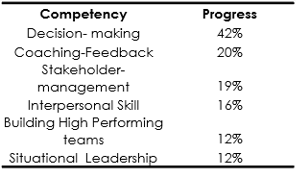How Leadership Coaching Can Support Your Growth?

The business world has become very fast-paced. The role of a leader is more critical than ever. Leaders are not only responsible for driving organizational success but also for nurturing a positive work culture and motivating their teams. One powerful tool that can help leaders excel in these areas is leadership coaching.
But what exactly can leadership coaching help with? Let’s delve into the key areas where leadership coaching can make a substantial difference.
Enhancing Leadership Skills with Leadership Coaching

Leadership coaching is very helpful in developing and refining essential leadership skills. A skilled coach can help leaders improve their communication abilities, ensuring they convey their vision clearly and inspire their teams.
Effective communication is a cornerstone of good leadership. Coaching can help leaders master both verbal and non-verbal communication techniques.
Moreover, leadership coaching helps in honing decision-making skills. Leaders often face complex decisions that require a balanced approach and critical thinking. A coach can provide strategies and frameworks to enhance a leader’s decision-making capabilities, ensuring they make informed and timely decisions that benefit the organization.
Strategic thinking is another area where leadership coaching can be highly beneficial. Coaches guide leaders in developing a strategic mindset, enabling them to anticipate challenges, recognize opportunities, and create long-term plans that align with the company’s goals.
Improving Emotional Intelligence

Emotional intelligence (EI) is a crucial component of effective leadership. Leaders with high emotional intelligence and soft skills are better equipped to understand and manage their own emotions, as well as the emotions of others. Leadership coaching can significantly enhance a leader’s EI by helping them develop self-awareness, self-regulation, empathy, and social skills.
Self-awareness involves recognizing one’s strengths, weaknesses, and triggers. A leadership coach can provide tools and exercises to help leaders gain deeper insights into their own behavior and how it affects others. This self-awareness is the foundation for personal growth and improvement.
Self-regulation is the ability to manage one’s emotions and reactions, especially in stressful situations. Through coaching, leaders learn techniques to stay calm and composed, making them more effective in high-pressure environments.
Empathy, the ability to understand and share the feelings of others, is another critical aspect of emotional intelligence. Leadership coaching can help leaders develop empathy, enabling them to build stronger relationships with their teams and foster a supportive and inclusive work environment.
Boosting Performance and Productivity

Leadership coaching can lead to significant improvements in performance and productivity, both for the leader and their team. Coaches work with leaders to set clear, achievable goals and develop actionable plans to reach them. This goal-oriented approach helps leaders stay focused and motivated, driving better performance outcomes.
Additionally, leadership coaching can identify and address specific challenges or obstacles that may be hindering a leader’s performance. By providing personalized feedback and support, coaches help leaders overcome these barriers and enhance their overall effectiveness.
Fostering a Positive Organizational Culture

A positive organizational culture is essential for employee satisfaction, retention, and overall success. Leadership coaching can play a key role in shaping and nurturing such a culture.
Coaches help leaders understand the impact of their behavior and actions on the organizational culture and guide them in adopting practices that promote positivity and engagement.
For instance, leadership coaching can encourage leaders to recognize and celebrate their team’s achievements, which helps to build a culture of appreciation and recognition. Coaches can also help leaders develop conflict resolution skills. Such skills help in ensuring that any disputes are handled constructively and do not affect the work environment too negatively.
Enhancing Adaptability and Resilience

Adaptability and resilience are vital traits for leaders in the fast-paced VUCA work environment. Leadership coaching can help leaders build these traits by encouraging a growth mindset and providing strategies to cope with change and adversity.
Adaptability involves being open to new ideas and willing to change one’s approach when necessary. Through coaching, leaders learn to embrace change and view challenges as opportunities for growth and innovation.
Resilience is the ability to bounce back from setbacks and remain optimistic in the face of difficulties. Leadership coaching provides leaders with the tools and support needed to build resilience, helping them stay focused and driven even in challenging times.
Leadership coaching offers a myriad of benefits that can significantly enhance a leader’s effectiveness and overall organizational success. The impact of leadership coaching is profound and far-reaching.
Investing in leadership coaching is not just an investment in an individual leader; it’s an investment in the entire organization. By empowering leaders to reach their full potential, companies can drive sustained growth, innovation, and success.
If you’re considering leadership coaching for your organization, now is the time to take the leap.












